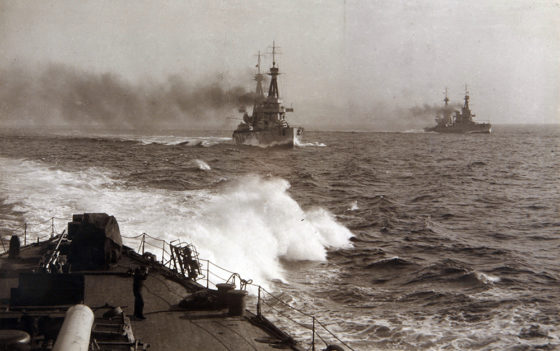
“Britain’s power to underwrite those coalitions came from a related series of revolutions—agrarian, mercantile, financial, technological, manufacturing, cultural, and political—that developed over the proceeding century.”
By William Nester
POWER IS the ability to get what one wants. In conflicts among nations, that involves the assertion of both “hard” physical power like personnel, production, organizations, and allies; and “soft” psychological power like morale, unity, ideas, plans, and leadership, to name a few of each. Ideally, among power’s many ends is more power to get more of the same or other desired goals.
Money is hard power’s literal and figurative bottom-line, especially in war. No one expressed that better than British Secretary at War Henry Dundas: “All wars are a contention of purse.”
William Wickham, a British spymaster, succinctly captured the dilemma and essence of wealth and power behind a coalition: “In a word, money you must give them; for without money, they cannot possibly go on, and without them we can do nothing.”

Faced with a rising foreign power and thus potential threat, a nation-state can either “bandwagon” with the challenger or “balance” against it by forging an alliance to deter or, if need be, defeat it. For centuries, Britain’s leaders balanced rather than bandwagoned against a series of threats that arose on the continent. Foreign Secretary George Canning explained that core British national interest and strategy in 1807: [It] is our business…to teach the world…that… whenever…the true balance of the world comes to be adjusted, we are the natural mediators for them all, and it is only through us alone that they can look for secure and effectual tranquility.”
Britain never performed that balancing act more intensively and eventually decisively than from 1793 to 1815. During those years, Whitehall, the seat of government, underwrote seven coalitions in wars, first against revolutionary France and then Napoleon, which cost Britain £1.6 billion. During this period the national debt tripled from £290 million to £860 million. Of that, British subsidies to around 30 allies topped £65 million, along with staggering amounts of war supplies mass produced by British factories and shipped abroad. Ambassadors to recipient countries combined the traditional duties of diplomat and spy with those of paymaster, accountant, and spending watchdog.

Britain’s allies had mixed feelings about all that aid. They at once eagerly took it and detested it. Then they demanded more. European powers hated the dependence and projected their self-loathing on their supplier. Naturally, Britons bristled at their allies’ ingratitude and hypocrisy, but kept distributing money, arms, uniforms, and other supplies vital to enticing allies to war or keeping them in the fight against the French empire.
Britain’s power to underwrite those coalitions came from a related series of revolutions—agrarian, mercantile, financial, technological, manufacturing, cultural, and political—that developed over the proceeding century. There are many reasons these transformations happened in Britain and not elsewhere. Among them, cultural values may be most crucial.
Constraints in Britain were fewer and incentives greater for enterprising individuals to invest, invent, buy, and sell in ways that enriched themselves and their nation more than in any other state, except the Netherlands for a while.

Indeed, Dutch and British merchants competed to capture markets and colonies around the world during the 17th century that culminated in three naval wars between them. Britain emerged victorious from those conflicts, having broken the back of Dutch naval and thus mercantile power.
Britain’s industrial revolution was unmatched. The country’s peerless mercantile and naval power let British traders reap profits from sales of mass-produced goods in markets around the globe. The government skimmed a portion of those profits through taxes, which it used to expand the same navy that protected British merchants and decimated rivals.
Of course, hard economic and military power is not enough to win a war. Leadership—good, bad, mediocre—then, as always, was crucial in determining what did or did not happen. Napoleon Bonaparte’s military genius crushed the first five coalitions arrayed against him. The sixth coalition briefly defeated him; the seventh definitively defeated him. This eventual collation victory sprung from several factors, of which the sheer weight of overwhelming numbers of coalition troops was perhaps most vital. Yet, without British finance and factories along with the brilliance of Admiral Horatio Nelson at sea and General Arthur Wellesley, Duke Wellington on land, the allies could never have mustered, armed, equipped, and fed enough men eventually to overwhelm Napoleon.

Nearly as vital was William Pitt the Younger, prime minister from 1783 to 1801 and 1804 to 1806. During his first decade in office, Pitt pushed through reforms that boosted the economy and government revenues while slashing corruption and inefficiency. Financially, Britain was in excellent shape when it went to war in 1793. Pitt then worked with talented ministers and diplomats to forge coalitions that warred against France. Thus, Pitt was critical for the ultimate victory, although he did not live to see it.
Britain’s leading role in Europe did not end with Waterloo. Immediately following the Sixth Coalition and amidst the Seventh Coalition, Britain constructed with the other great powers a security system of cooperation and consultation called the Concert of Europe that prevented a serious conflict among them for two generations and a war that engulfed most of the continent for nearly a century.
 William Nester is the award-winning author of The Coalitions against Napoleon: How British Money, Manufacturing, and Military Power Forged the Alliances that Achieved Victory. He has written more than forty books on war, global politics and the nature of power.
William Nester is the award-winning author of The Coalitions against Napoleon: How British Money, Manufacturing, and Military Power Forged the Alliances that Achieved Victory. He has written more than forty books on war, global politics and the nature of power.









